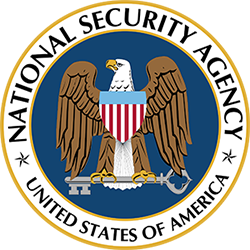Programs Offered
Sample Courses
Quick Facts
- The United States loses $100 billion annually as a result of cybercrime, which targets over 556 million victims per year.
- The FBI’s Most Wanted List for cyber criminals currently contains just five individuals, but each is responsible for consumer losses ranging from $350,000 to $100 million.
- About 10% of all social media users have received a cyber-threat. More than 600,000 accounts are compromised every day on Facebook alone.
National CAE2Y Program
The Information Technology (IT) curriculum prepares graduates for employment in the technology sector as designers, testers, support technicians, system administrators, developers, or programmers who use computer software and/or hardware to design, process, implement and manage information systems in specialties such as database services, security, business intelligence, healthcare informatics and others depending on the technical path selected within this curriculum.
Course work includes development of a student’s ability to create, store, communicate, exchange, and use information to solve technical issues related to information support and services, interactive media, network systems, programming and software development, information security and other emerging technologies based on the selected area of study.
Graduates should qualify for employment in entry-level positions with businesses, educational systems, and governmental agencies which rely on computer systems to design and manage information. The program will incorporate the competencies of industry-recognized certification exams.
Program-Level Learning Outcomes
Graduates should be able to:
- Investigate current and emerging cyberthreats and incorporate best practices to mitigate them.
- Detail appropriate methods, and using industry-standard terminology, cybersecurity-related issues within an organization as they pertain to Confidentiality, Integrity, and Availability.
- Apply appropriate countermeasures to help protect organizational resources based on an understanding of how attackers think and operate.
Rowan-Cabarrus Community College recently became officially designated as a National Center of Academic Excellence in Cyber Defense Two-Year Education (CAE2Y) through academic year 2019, a feat that establishes the College as one of the nation’s academic trailblazers in the area of cybersecurity. Jointly sponsored by the National Security Agency (NSA) and the Department of Homeland Security (DHS), the CAE2Y program recognizes colleges and universities that have made significant contributions in meeting the national demand for cyber defense education, developing a number of professionals with cyber defense expertise and ultimately contributing to the protection of the national information infrastructure.
Upon completion of the program, participants will be prepared for lucrative careers in both local and national industries such as law enforcement and banking. And our partnership with the NSA and DHS gives Rowan-Cabarrus students internship and field trips with these agencies.


